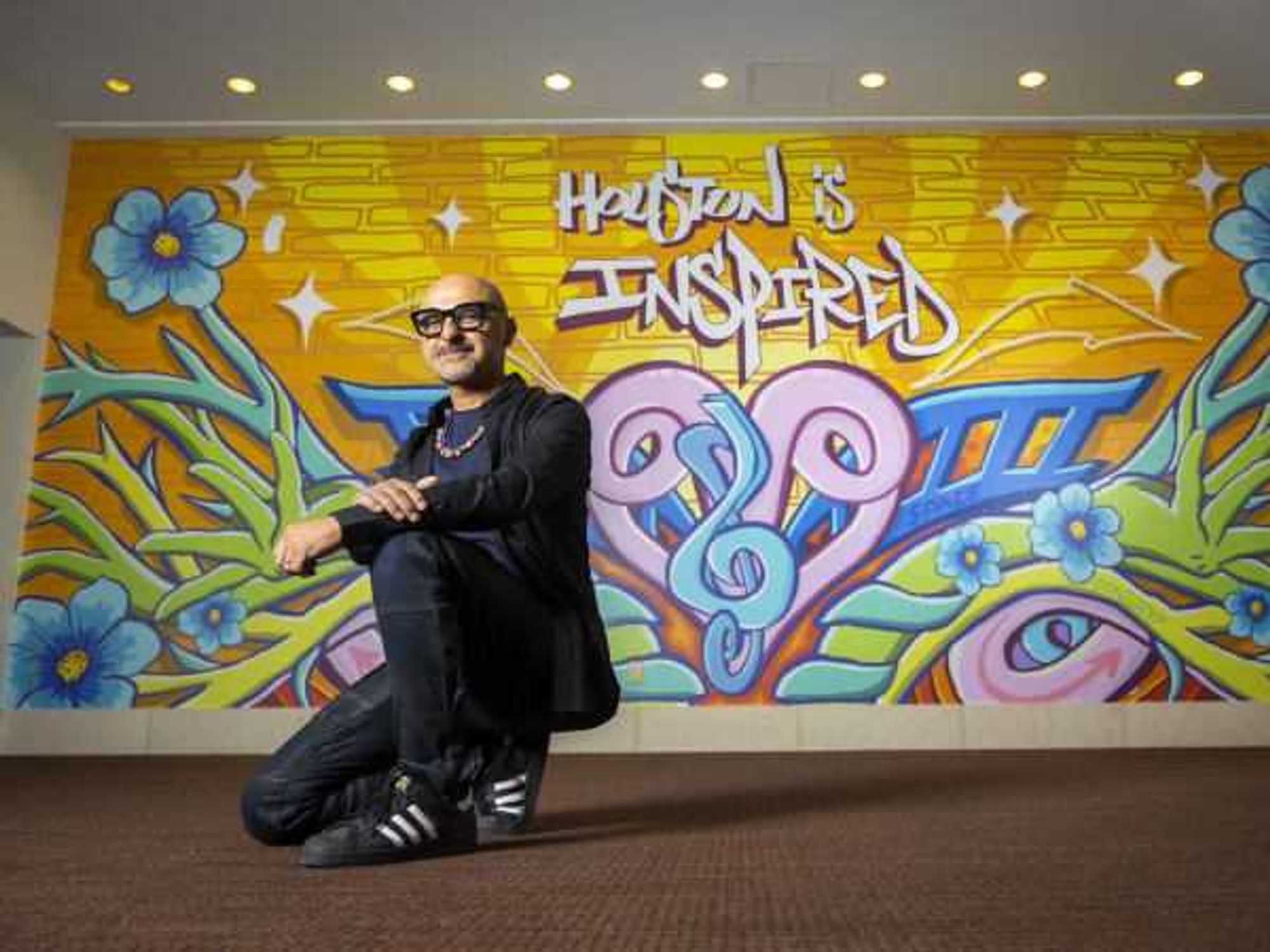Conductor Search
Here he comes to save the day: Jakub Hruša propels Houston Symphony beyondtechnical limits
Arms stretched out in flight position, tuxedo tails still flapping, Jakub Hruša held a bold stance at the end of the second movement of Leoš Janáček's Taras Bulba. Short of not taking flight, the 30-year-old wasn't stifled by the physical confines of the podium in his attempt to drive the orchestra musicians to their demonstrative and technical limits.
Brutal yet painterly, the symphonic poem pays homage to the historical novel by Nikolai Gogol. There was no question that the maestro had a cultural connection to the tale.
Hruša spoke about the piece with a poised and classy demeanor. When he stepped onto the director's raised platform, he morphed into an unhinged superhero on the verge of musical madness — how appropriate for Janáček's deadly tale and the Eastern European-focused repertoire.
It was a strong Houston Symphony debut Friday night at Jones Hall, one that questions Hruša's eligibility as the next music maestro pending Hans Graf's retirement after the 2012-13 season.
Grace, elegance and an earthy pesante gusto ruled the musical mise en scène.
With a few exceptions in Alexander Borodin's Polovetsian Dances from Prince Igor, during which the violins and upper winds ran the risk of spontaneous combustion, the orchestra went along for the ride, rendering this performance hair-raising on many accounts. Alongside the Houston Symphony Chorus — whose director, Charles Hausmann, was celebrating 25 years with the group — the Houston Symphony can produce quite a boisterous and lusty wall of sound.
Hruša's provenance was of importance as Antonín Dvořák's Te Deum, Opus 103 — with soloists soprano Christine Goerke and baritone Nathan Berg — and Slavonic Dances, Opus 46 were on the playbill. I was curious: How would the Czech maestro handle late Romantic tunes of his own motherland?
An earthy grace and pesante gusto ruled the musical mise en scène. Hruša was careful to bring out the major-minor interplay, affixing slight changes in tempi when aesthetically appropriate.
There was no unwarranted sentimentality, though it was tender at times. In the dances, think bucolic fun, light and friskiness that achieves that sweet spot between forward momentum and a relaxed pace suitable for folk music.
A fresh face for music director
Hruša's debut aligned with an initiative to offer fresh faces to Houston's classical music junkies, at once a strategy to screen many potential replacements for the music director position.
It's exciting to ponder what could come from the orchestra getting to know Hruša and Hruša understanding the players of the orchestra.
Maestro Hruša may not currently be on the short list — so far that roll call includes Hannu Lintu, Christoph Koenig, John Storgårds, Pablo Heras-Casado, Andrés Orozco-Estrada, Juanjo Mena, Thomas Dausgaard, Gilbert Varga and Carlos Kalmar — nevertheless, he's a person of interest.
Should he be?
As one of Gramophone magazine's 2011 10 young conductors "on the verge of greatness," it's a demanding year with first appearances with the Dallas Symphony, National Arts Center Orchestra Ottawa, Netherlands Philharmonic, Barcelona Symphony, Scottish Chamber Orchestra, Royal Liverpool Philharmonic and Orchestre National de Lyon. In August 2013, Hruša will begin serving as music director of the Royal Danish Theatre in Copenhagen, a post previously held by Michael Schønwandt, who departed in 2011 with artistic director Kasper Holten.
The Seattle Times praised his "impeccable control, expressive interpretations, and colorful, detailed approach." Neal Fisher of The Times writes: "If there's a comparison to be made with Mackerras, it's that Hruša also gives [Dvorak's] buoyant music light and air as well as forward momentum." He also describes Hruša as charismatic and mature, and his approach profound.
This concert revealed many potential synergies between conductor and orchestra, yet not all were realized. And that's a good thing. Hruša's conducting style demands a fair amount from the musicians: Energy and largesse but not at the detriment of intimacy. The shoe may not fit perfectly today, but it's exciting to ponder what could come from the orchestra getting to know Hruša and Hruša understanding the players of the orchestra.
With the couple of standing ovations — Houston audiences love to get on their feet — I suspect we will see him again.
